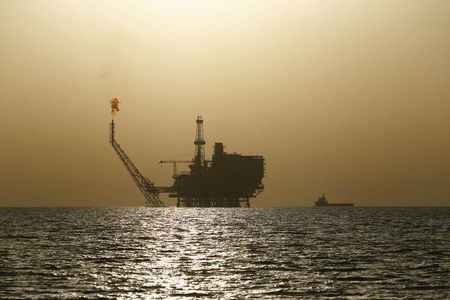
Investing.com– Oil prices fell sharply in Asian trade on Tuesday, extending recent losses amid growing concerns over a demand slowdown, while a report suggesting that Israel will not attack Iranian oil facilities also weighed.
Crude prices tumbled around 3% on Monday after top importer China logged a fifth straight monthly decline in oil imports, spurring fears of weak demand. These fears were exacerbated by the Organization of Petroleum Exporting Countries cutting its oil demand outlook for a third consecutive month.
Brent oil futures expiring in December fell 3% to $75.16 a barrel, while West Texas Intermediate crude futures fell 3% to $71.03 a barrel by 21:19 ET (01:19 GMT).
Demand fears grow on OPEC cut, China concerns
Fears of slowing oil demand were a major weight on prices, especially following somewhat underwhelming signals from top importer China.
China’s Ministry of Finance over the weekend outlined a slew of fiscal measures to support the economy. But traders were underwhelmed by a lack of clarity on the timing and scale of the measures, as well as a lack of clear measures aimed at supporting private consumption.
Data on Monday also showed China’s oil imports fell for a fifth consecutive, signaling that weak economic conditions were chipping away at China’s appetite for crude.
Fears of slowing demand were exacerbated by the OPEC cutting its 2024 and 2025 global oil demand forecasts for a third consecutive month.
The cartel expects 2024 oil demand growth of 1.93 million barrels per day, down from prior forecasts of growth of 2.03 million bpd. The cartel cited China as a key motivator of the downgrade.
Prospect of less severe M.East escalation dents oil
Oil prices were also dented by the prospect of a less severe escalation in Middle East tensions, after a report on Monday said that Israel will not attack Iran’s oil and nuclear facilities.
Such a potential strike was expected to mark a major escalation in the conflict, and had seen traders attaching a greater risk premium to oil on expectations of the attack.
Fears of all-out war in the Middle East were a major boost to oil prices in recent weeks, especially after Iran launched a missile strike against Israel earlier in October. Focus is now squarely on Israeli retaliation.
This post is originally published on INVESTING.


